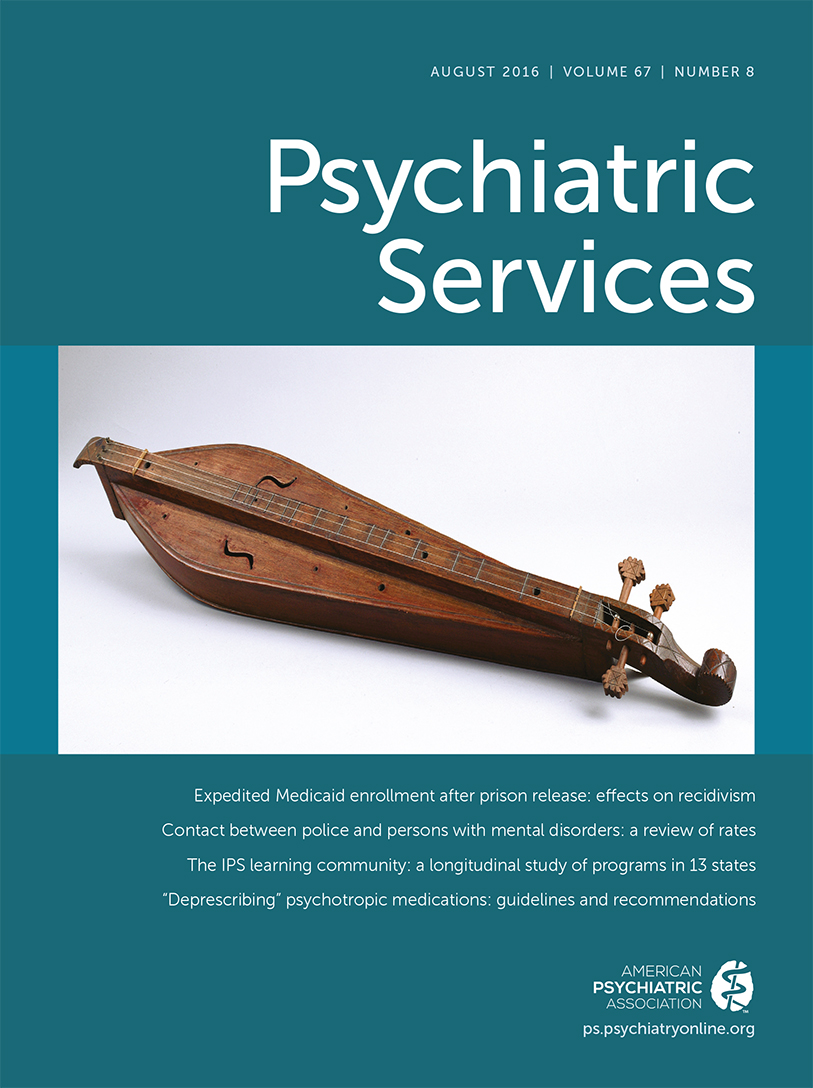Technology-Supported Peer-to-Peer Intervention for People With Serious Mental Illness
High rates of preventable, obesity-related health conditions (heart disease, hypertension, and diabetes), attributable to sedentary lifestyles, poor nutrition, and medications, are major causes of the dramatically reduced life expectancy of people with serious mental illness. Community mental health organizations are increasingly embracing “whole health” and wellness as central to their mission and services, yet because of resource constraints these agencies are often limited in their ability to provide evidence-based health promotion practices to the many individuals who need them. Developing new intervention strategies that create communities of wellness in which participants give each other frequent, ongoing, and flexible support for health behavior change has the potential to gain traction as a desirable and scalable approach to health promotion for this at-risk population.
We developed a novel group-based lifestyle intervention (“PeerFIT”) for overweight and obese individuals with serious mental illness that leverages popular mobile health technologies, social media, and peer relationships to create a highly connected and sustainable network of peer support for health behavior change. The feasibility and acceptability of PeerFIT have been evaluated in a series of iterative pilot studies, conducted with 45 participants between July 2014 and December 2015. A randomized controlled trial is planned to test the effectiveness of the intervention for young adults in mental health settings. The model was designed via a participatory research process. Our research team met regularly with mental health consumers, peer support specialists, professional health coaches, and mental health agency leadership and staff who provided valuable insights into the potential role of peer support and technology in promoting health behavior change for individuals with serious mental illness. Here we describe three key lessons learned from this experience, including the role of professionals in delivering lifestyle interventions for individuals with serious mental illness, activation of peer-to-peer support for health behavior change, and the use of technology to support lifestyle change for this population.
Role of Professionals in Lifestyle Interventions
In designing the PeerFIT program, our team considered an entirely peer-led lifestyle intervention model. However, after using an early version of the program based on this approach, peers and participants expressed a strong desire for mutually beneficial, nonhierarchical relationships whereby peers and participants with the same health goals provided reciprocal support for behavior change. We found that using trained health promotion professionals (who could be peers, but not necessarily) to deliver the intervention content allowed peers and participants to more naturally develop the types of peer relationships necessary to support health behavior change while following evidence-based recommendations for healthy eating and exercise.
Activating Peer-to-Peer Support
We learned through observation and participant feedback that standard didactic teaching methods promoted passive teacher-centered learning and ultimately inhibited participant interactions with one another. We modified the program to include an experiential and collaborative learning process that, in contrast to didactic lectures, was facilitated through group discussion, team-building activities, and hands-on group problem solving tied to real-world challenges with healthy eating and exercise. These techniques were key to activating peer-to-peer support and reinforcing learning objectives.
Use of Technology to Support Lifestyle Change
In the PeerFIT program, group-based weight management sessions were enhanced with smartphone technologies, wearable activity-tracking devices (Fitbits), and a private Facebook group to facilitate peer support outside of treatment sessions. The greatest skepticism about the potential feasibility of this approach came from researchers and mental health providers. In contrast, many of the consumers participating in our pilot study were already familiar with the existing technologies used in the program or were willing, able, and eager to learn how to use them to support their health goals and interact with other participants.
Implications for the Field
A key feature of the PeerFIT intervention is that individuals with serious mental illness can share information and experiences and provide one another with frequent and ongoing support for health behavior change. Lifestyle interventions that use collaborative learning techniques and technology to foster and strengthen social connections represent a new paradigm for addressing obesity among people with serious mental illness served in mental health settings.



